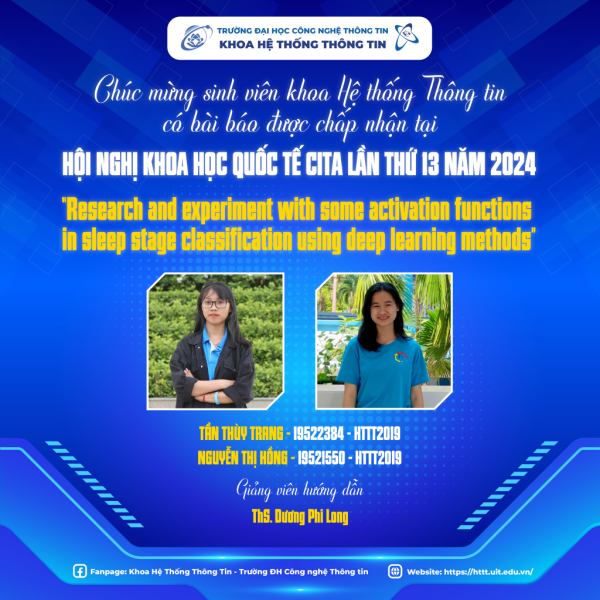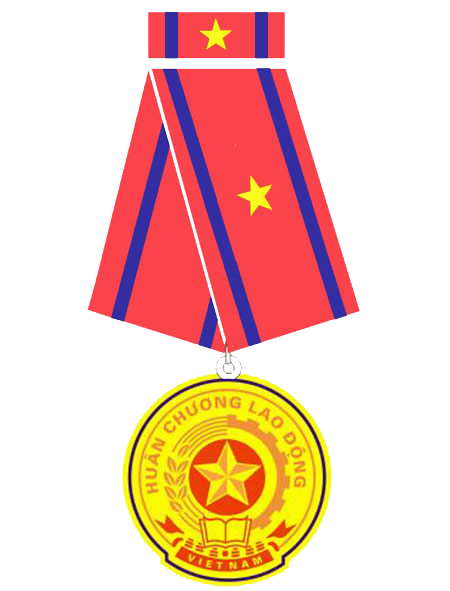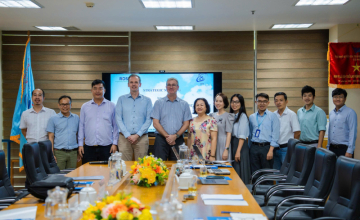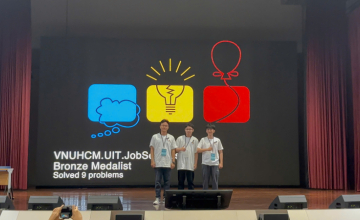CITA (Conference on Information Technology and ITs Application) is an annual scientific conference aimed at creating a forum that gathers and connects researchers, scientists, and experts from Vietnam and internationally in the fields of information technology and its applications. The 13th CITA in 2024 will be organized by the University of Information Technology and Communications (VKU), a member of the University of Da Nang, with the support of other research and training institutions under the ASEAN Association for Research and Innovation (ACIR) and the Vietnam ICT Association of Faculties-Institutes-School-Universities (FISU Vietnam). The conference will take place on July 19-20, 2024, in Da Nang City and Hoi An City.
Conference link: CITA Conference
Paper title: "Research and experiment with some activation functions in sleep stage classification using deep learning methods"
Students involved:
- 19522384, Tran Thuy Trang, HTTT2019.
- 19521550, Nguyen Thi Hong, HTTT2019
Supervisor: MSc. Duong Phi Long
Abstract: "Sleep disorders are becoming increasingly complex in today’s society. Analyzing sleep structure provides valuable information about sleep types, sleep cycles, and variations in different stages. However, manual sleep stage classification is challenging and time-consuming, limiting its clinical use. Deep learning methods have demonstrated promise for automated sleep stage classification, but they face challenges such as class imbalance and the need for interpretability. This paper investigates three deep learning methods, TinySleepNet, TS-TCC, and CA-TCC, using the Expanded Sleep-EDF dataset. We evaluate the performance of these methods and propose methods to address the aforementioned challenges. Our results show that deep learning methods can achieve high accuracy for sleep stage classification, especially with the proposed enhancements. We also developed a sleep stage classification tool based on methods."

For more detailed information, please visit: Link to the article
Ha Bang - Collaborator, Media Department, University of Information Technology and Communications








